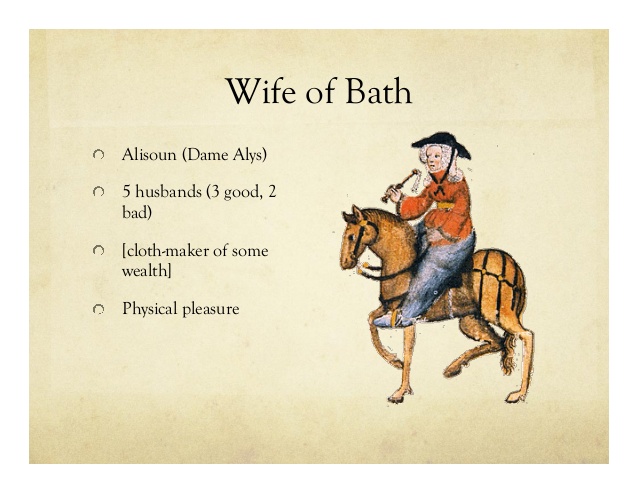Our college has been going through turmoil after a student walked into a basketball game wearing a Confederate flag. In my early British literature class today I plan to link the incident to the Wife of Bath’s Prologue in The Canterbury Tales. Can you figure out how?
First, here’s what happened. A sociology teacher wanted students to break some norm and write an essay about doing so. She cautioned them not to do anything that was dangerous or that would get them into trouble. I assume the assignment was designed to make her students aware of society’s unspoken rules.
The student took the assignment beyond what she anticipated, and African American students were outraged. Yik Yak went crazy (for a description of this anonymous, unfiltered discussion board, go here), our African American president weighed in, Yik Yak went even more crazy, and there was a forum. I’m not sure where we are now.
I can’t speak for other colleges, but when incidents like this occur at St. Mary’s College of Maryland, they wound deeply. That’s because we’re a small college that prides itself on making everyone feel welcome. Generally students feel safe here, with the result that such incidents come as a real shock. Many students of color feel betrayed.
There is an even smaller percentage of women amongst the Canterbury pilgrims than there are African American students at St. Mary’s. Only two are given a voice, the Wife of Bath and the Prioress, and the Prioress escapes general censure by her ultra-feminine demeanor. The Wife wants something more.
Like our minority students—in fact, like most human beings—she wants the community to accept her for who she is. Medieval misogyny went deep, however, fostered by celibate monks who equated women with the sins of the flesh. When the Wife tries to become one of the gang, the pilgrims make fun of her.
It’s not at first clear how sensitive she is. In fact, she seems to be supremely confident, opening her prologue with the blasphemous declaration that her experience as a wife gives her more insight into marriage than “authority.” Authority, for the record, includes the Bible, figures like St. Paul, and the Church. Yet it becomes clear how much the Wife wants to fit in by the way she attempts to sound like a Biblical scholar in her defense of her five marriages. She doesn’t succeed—in fact, she makes a hash out of the whole business—and the pilgrims begin laughing at her. Part of her feels very small.
When attacked, however, the Wife goes on the attack, and she begins to play out the stereotype of the sexually voracious widow. When she says at one point that she gave her husbands more sex than they could handle and the Pardoner responds that she has just convinced him never to get married, she essentially responds with a “You ain’t heard nothing yet”:
“Abyde,” quod she, “my tale is nat bigonne.
Nay, thou shalt drynken of another tonne
Er that I go, shal savoure wors than ale;
And when I have toold thee forth my tale
Of tribulacioun in marriage
Of which I am expert in al myn age,–
This is to seyn, my self have been the whippe…”
One suspects how desperately she wants to be accepted when, in her fifth marriage, she signs away all her wealth to her boy toy of a husband and attempts to be a submissive wife. All she gets is abuse, however, at which point she takes back the reins of the marriage.
And then there is her tale about a rapist knight who must spend a year figuring out what women most desire. (If he doesn’t discover the right answer, he will be beheaded.) As I interpret the story, it reveals what the Wife most desires: to have her feelings consulted and respected. Once that occurs, as it does in the tale’s conclusion, she will give her husband everything he wants.
My African American students want to be accepted along with everyone else. When they discover that they are seen through a different lens, many feel hurt and lash out. This intimidates white students even further and an impasse ensues.
As we discussed the incident in Friday’s class, a number of students wanted to argue that the offending student had a right to free speech and that the Confederate flag wasn’t that big a deal. I responded that a more useful approach is to try to understand why the black students feel hurt. Learn about the daily microaggressions they endure that led to their fury over the Confederate flag, I counseled. (Their anger over the flag did not occur in a vacuum but was overdetermined, the result of many racial slights.) Substantive human connection will lead to more healing than abstract debates by people who have never experienced prejudice.
The Wife of Bath reminds us how much progress can be made if we genuinely listen to each other. Under all the yelling, this is what people are often signaling that they “moost desiren.”


